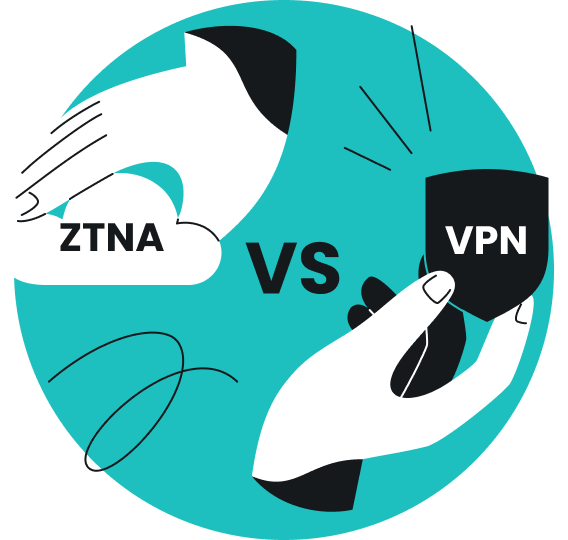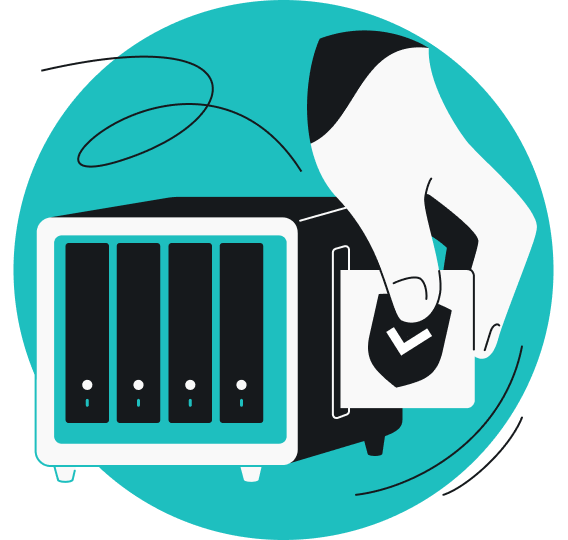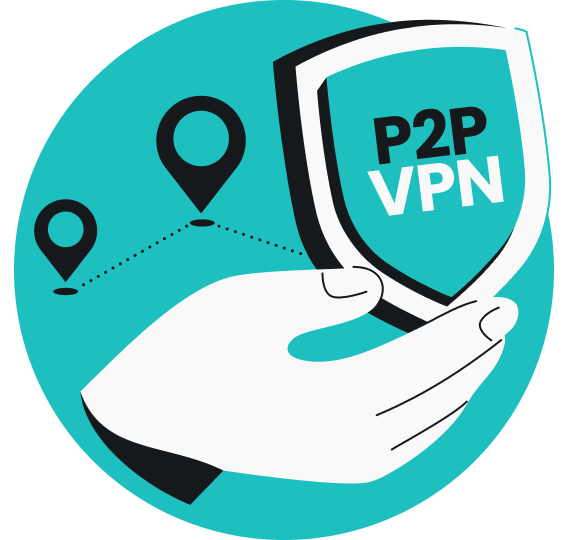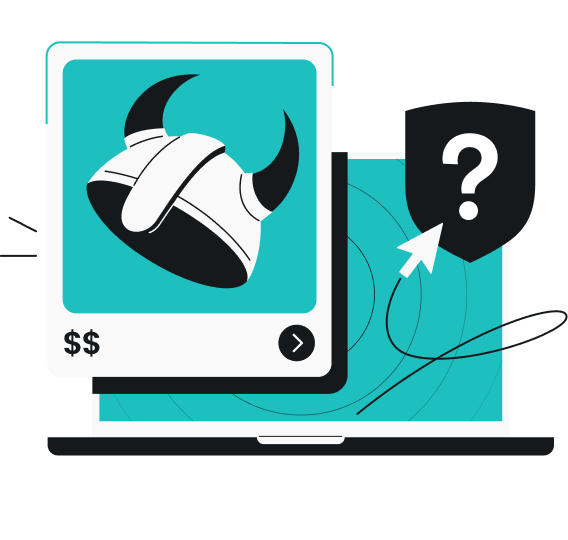Using a VPN (Virtual Private Network) is a smart way to increase online privacy and security, but many free VPNs are generally not safe. Even the best free VPN likely won’t be as effective as a paid alternative, and free tools may expose users to all sorts of dangers.
Not all VPNs are created equal, so let’s explore why free ones might cost you more than you think.
Are free VPNs safe to use?
No, free VPNs often aren’t safe to use. They typically have weaker security features, making them an easier target for hackers. Many don’t use strong encryption and leave your data vulnerable to interception. Some even monetize their service by logging and selling your data — defeating the very purpose of using a VPN.
So, how many people still use free VPN services?
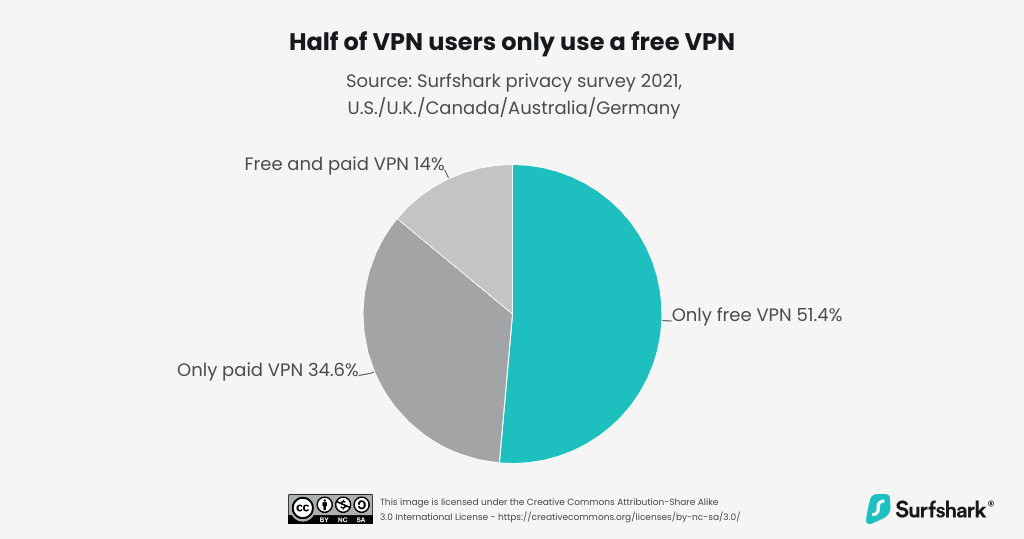
Based on the 2021 VPN statistics, over 51% of all VPN users turn to free services only. This suggests that a significant chunk of those who use a VPN aren’t that security and privacy conscious, and rather use it for different purposes.
Why should you avoid free VPNs?
You should avoid free VPNs because they offer worse privacy and security than paid options in many cases. Several free VPN providers sell user data or flood their apps with ads, treating you as their product. They rarely have enough resources to maintain their server networks, making free VPNs easier to hack.
Conventional wisdom holds that choosing a free service is risky. A 2024 study found that 88% of free Android VPNs leak user data, highlighting their inability to safeguard your internet traffic.
Using a free VPN to protect your online privacy is like using a plastic bag from the grocery store as a parachute. Just as a flimsy bag would fail you in freefall, even the best free VPNs won’t keep you safe on the web.
If you want reliable protection, you have to invest in a trustworthy paid VPN service.
7 risks of free VPN services
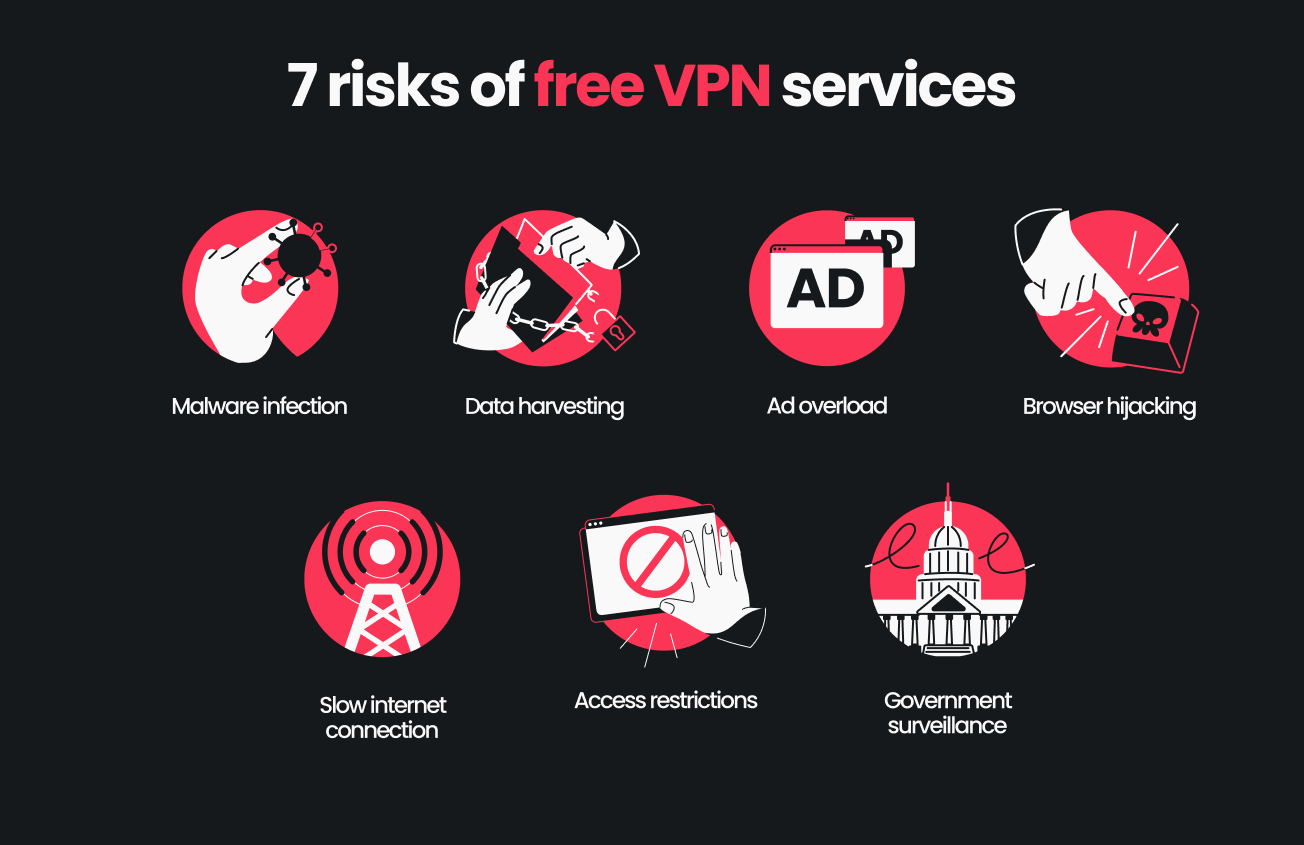
While most paid VPN services are perfectly safe, free VPNs often make you vulnerable to a world of pitfalls. Here are the top risks that free VPNs can expose you to:
1. Malware infection
One reason free VPNs aren’t as safe as paid tools is their frequent association with malicious software. The free VPN industry is rife with apps that come bundled with malware, malvertising, and all kinds of unsafe add-ons.
In a 2024 test, 20% of free VPNs were flagged as malware by antivirus scanners. Malware can steal personal data, spy on your activity, and grant hackers remote control, so having it on your device can do a lot of harm.
To get the most secure VPN that truly elevates your online privacy, steer clear of free VPNs.
2. Data harvesting
If you’re not paying for a VPN subscription, free VPNs have other ways to profit from you. One of them is by collecting and selling data from free users.
Free VPNs can log your browsing activity, search history, IP (Internet Protocol) address, and physical location. This information is often sold to advertisers or other third parties, sometimes without clear disclosure.
While advertisers might just want data for targeted ads, some free VPNs have been caught mishandling user information, leaving it vulnerable to leaks or exposure. If you’re using a free VPN for online banking, work emails, or other sensitive data, you might be putting more at risk than you realize.
3. Ad overload
Free VPNs can make money without charging a penny by bombarding users with intrusive ads. At best, these ads are just an annoyance that disrupts your browsing. More often, however, they’re a major violation of your online privacy.
Why?
Free tools can track your online activity and browsing habits to help advertisers display targeted ads. Free VPN users think they’re surfing privately, but in reality, their VPN could be leaking — whether intentionally or not — sensitive data like IP addresses, website visits, and search history.
4. Browser hijacking
Some free VPN services may alter web traffic patterns by hijacking your browser. A VPN browser extension with a free plan, for instance, may insert malicious code directly into your browser.
As this code runs in the background, free subscribers can be redirected to shady websites without ever giving permission. This can change your search results, switch your homepage, and expose you to unwanted ads or malware, risking your online safety.
Browser hijacking is a stark reminder to choose a trusted, secure VPN to protect your privacy.
5. Slow internet connection
Free services that bombard you with ads, collect your info, and run unwanted processes in the background take up a lot of resources. As a result of all this bloat, your internet speed is bound to slow down. All of these activities use your data or Wi-Fi, so everything you do online will be that much slower on a free VPN.
Free VPNs also tend to rely on a subpar server network. They have fewer servers in fewer locations and usually can’t handle a substantial amount of users. Being forced to connect to a congested VPN server can slow your connection to a halt.
This problem exists for paid tools that offer a free trial or free version as well. These can deliberately slow down your internet connection to not-so-subtly nudge you to upgrade to their premium version, which offers faster speeds.
6. Access restrictions
Compared to paid tools, free VPNs are more likely to struggle with content restrictions because they rely on a limited number of shared IP addresses. If thousands of simultaneous connections are forced to access the same server location, websites can easily detect and block the IP in question.
In fact, many popular platforms — like streaming services — flag high-traffic IPs as suspicious, leading to frequent connection errors, CAPTCHAs, or outright blockages. This makes free VPN apps unreliable for everyday browsing, as you may need to constantly switch servers just to access basic sites.
Another issue is that free VPN providers lack the resources to maintain a robust server network, so users are stuck with the same old IP addresses. If a free VPN server were to be blocked, users would have no way of replacing their denied IPs. With free VPNs, you’re often limited to unstable connections that can’t consistently deliver unrestricted internet access.
Disclaimer: Please note that using Surfshark services for any illegal activities is strictly forbidden and violates our Terms of Service. Make sure that any use of Surfshark services for your particular activities conforms to all relevant laws and regulations, including those of any service providers and websites you access using Surfshark.
7. Government surveillance
You may know some free VPNs, but can you name the companies that make them? The VPN world has its fair share of shady entities with questionable ties to authoritarian governments, so downloading a simple tool can do quite a bit of harm to your privacy and security.
Here’s a not-so-fun fact — 33% of popular mobile-only VPNs, many of which are free, are owned by Chinese nationals. These ties to China’s regime raise serious concerns about potential data monitoring by government officials.
Similarly, VPNs linked to countries with strict surveillance practices may be vulnerable to governmental pressure, compromising user privacy. For instance, some free VPNs in Russia operate under stringent regulations that may require data logging. VPNs operating in Iran could be compelled to monitor user activity, too.
These scenarios highlight the importance of choosing a VPN provider with transparent ownership, a strong privacy policy, and a paid subscription to ensure your data stays secure.
Are free VPNs worse than no VPN?
Most of the time, using no VPN is better than using a free VPN.
In terms of security, free VPN providers can collect and sell data about you. Yes, using no VPN means your ISP (Internet Service Provider) and websites can track you, but at least you know who has access to your data. With a shady free VPN, your data could end up anywhere — often without your knowledge.
When it comes to exposure to malware, a free VPN with a questionable reputation is also riskier than having no VPN at all. Some free VPNs may contain malware or adware, infecting your device and compromising security.
Of course, it’s important to note that not all free VPN providers sell your data or expose you to malware. It’s essential to do your research and choose a VPN provider you trust.
Free VPN vs. paid VPN
When comparing free vs. paid VPNs, paid options consistently come out on top. Here’s a breakdown of how free and paid services stack up:
| Free VPN | Paid VPN | |
|---|---|---|
| Data limits | Most free VPNs limit the amount of data users can use each month, which can even drop below 500 MB. | Reputable paid VPN providers don’t restrict data or VPN usage and offer unlimited simultaneous connections. |
| Speed | Free VPNs often have slower speeds and may experience frequent connection drops or buffering issues due to an inferior infrastructure. | Paid VPNs offer faster and more reliable speeds, as they typically have more servers and less crowded networks. |
| Protocols & encryption | Free VPNs often have weaker security features and may not use the strongest encryption or the safest VPN protocols. They are generally easier to hack. | Paid VPNs offer more robust security features than other VPNs, including stronger encryption protocols and additional security measures. |
| Features | Free VPNs are usually all about changing your IP address. They often don’t have additional features like an ad blocker or kill switch. | Paid VPNs invest in advanced features that give you strong encryption and greater overall privacy and security. |
| Server locations | Free VPNs may have limited server options, making it more difficult to access content safely. | Paid VPNs offer a wider range of server locations, allowing users to pick their preferred server. |
| Customer support | Due to limited resources, free VPN service providers offer limited support options or none at all. | Paid VPNs usually offer 24/7 live customer support via chat, email, or phone. |
| Price | While free VPNs don’t ask you to pay, they can still profit by collecting and selling your data or showering you with ads. | Paid VPNs have a subscription fee, which differs from one VPN provider to the next. Leading services offer a 30-day money-back guarantee. |
It’s worth paying for a reputable VPN service offering unlimited data, faster speeds, and better security.
If you’re concerned about the risks associated with free VPNs but don’t want to commit to paying just yet, consider a VPN free trial. This way, you can test the difference in security and performance risk-free.
How to choose a safe and reliable VPN service
To find a trustworthy VPN, first check if it’s a free or paid tool. A paid option will usually give you a safer VPN connection. Then, check the provider’s:
- Privacy policy: does the VPN service collect any data, and what do they do with it? For maximum privacy, choose a VPN with a no-logs policy to ensure your online activity stays with you.
- Encryption: a reputable VPN should use strong encryption — like AES-256 — and support secure protocols such as WireGuard, OpenVPN, and IKEv2.
- User reviews: what are VPN users and experts saying? See if online reviews can confirm the provider’s reliability, speed, and customer support quality.
Final note: are free VPNs good?
While using a free VPN may seem like a cost-effective solution, it can expose you to a higher risk of malware. If you want enhanced online security against potential attacks, use a paid VPN — like Surfshark — with the necessary resources, strong encryption, and advanced security features.
FAQ
Is it risky to use a free VPN?
Yes, free VPN services generally aren’t as safe as paid ones. They have few resources for building a proper infrastructure and lack additional safety features. Even worse, free VPNs can compromise your online security by collecting and selling your data or showering you with ads.
Do all free VPNs sell your data?
No, not all free VPNs sell your data, but many typically rely on other revenue options — such as ads — since they don’t charge a subscription fee. VPNs aren’t free to run, so providers typically need to generate income somehow.
With so many free VPNs out there, it’s hard to know for sure how safe your data is with a given provider. As a result, you’re much better off using a paid VPN with a verified privacy policy.
Is a free VPN safe for iPhones?
No, it’s generally hard to find a free and safe VPN for iPhones. Overall, iPhones are better protected from malware than Android devices, but a VPN that collects your data is dangerous on any device. Safe free VPNs are available, but these will likely offer limited features and performance.
Is a free VPN safe for Android?
No, free VPNs aren’t always safe for Android. They often come with risks like data logging, limited encryption, and potential exposure to malware. Many free VPNs also have poor security practices and may even sell your data to third parties.
For reliable protection on Android, it’s better to choose a reputable, paid VPN service that offers strong encryption, a no-logs policy, and regular security audits.
Are there any good free VPNs?
There aren’t many good free VPN services available. Reliable free VPNs exist, but they usually come with limitations in terms of speed and data. While safe, they often can’t afford to offer the same level of service quality as paid VPNs.


